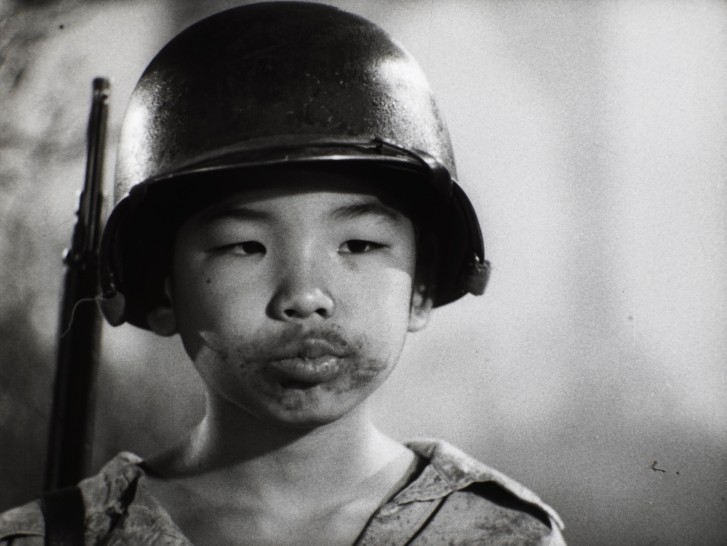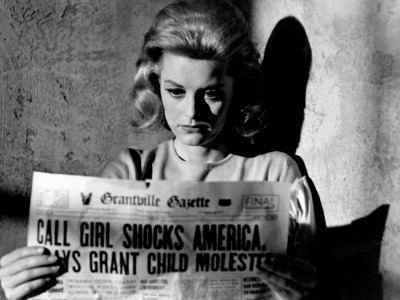
The Steel Helmet
With Gene Evans, Robert Hutton, Steve Brodie.
US, 1951, 35mm, black & white, 85 min.
Print source: George Eastman Museum
A surprise critical and commercial hit that won Samuel Fuller a directorial contract with 20th Century Fox, his first combat film was also the first American feature to depict the Korean War, released while the conflict and US Red Scare hysteria were furiously ablaze. Based on Fuller’s own war experience, The Steel Helmet vividly captures the confusion of battle while also giving early expression to the bravely critical gaze Fuller would cast upon the American experience throughout his career. Shooting largely in Los Angeles’ Griffith Park on a minimal budget, Fuller plunges the viewer into the miasma of war with a taut and emotional intensity, guided by Gene Evans’ Sergeant Zack, a WWII “retread” and grizzled Everyman who regards everyone with the same unpitying honesty and anger. Wounded and abandoned deep behind enemy lines, the disoriented sergeant seems to rise from the dead, lending an oneiric quality to the wandering path that leads him to a precocious Korean war orphan and a ragged group of lost fellow soldiers, including an African American medic and wisecracking Nisei who together form a pointedly composite and complex image of America.









































